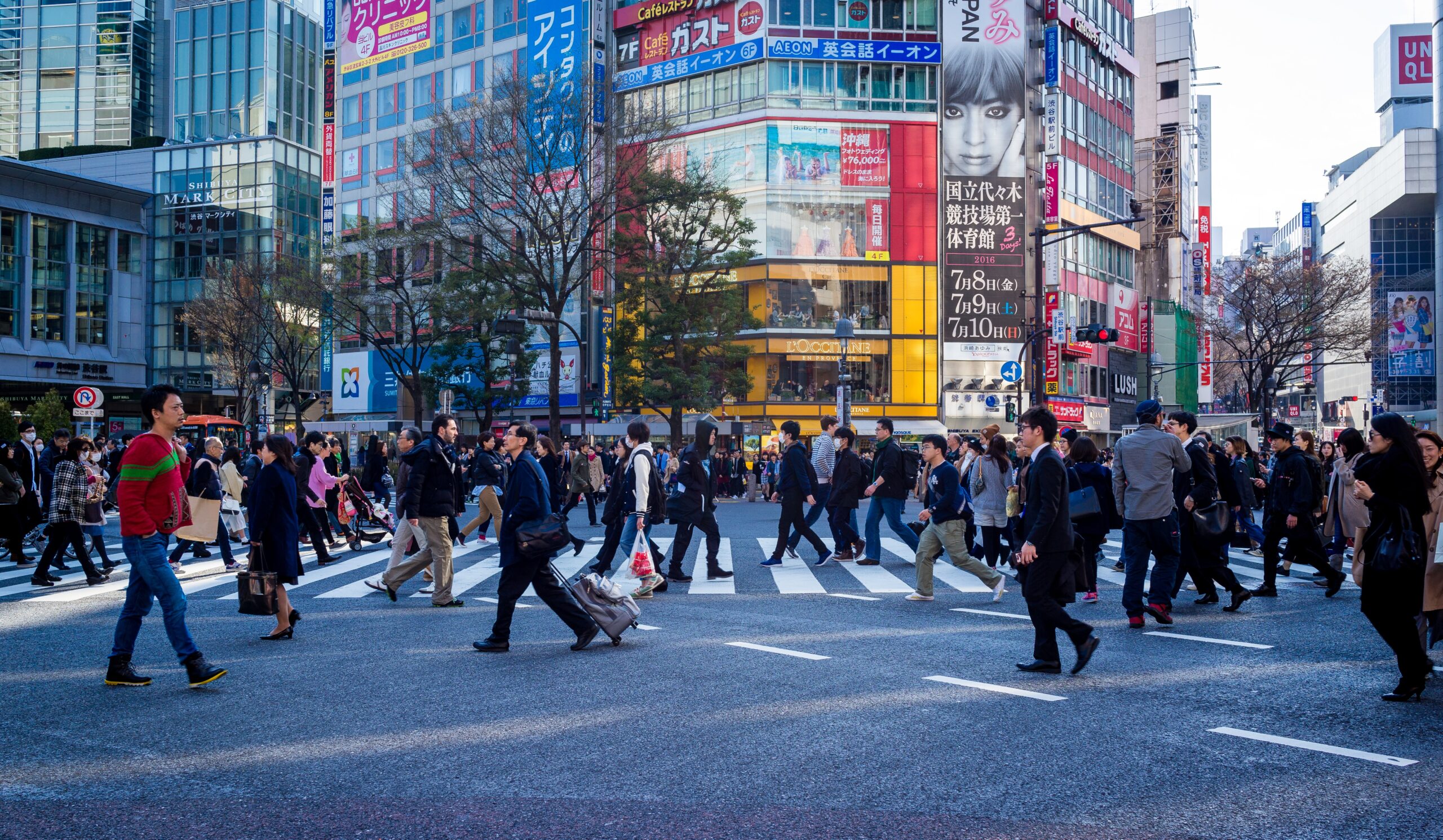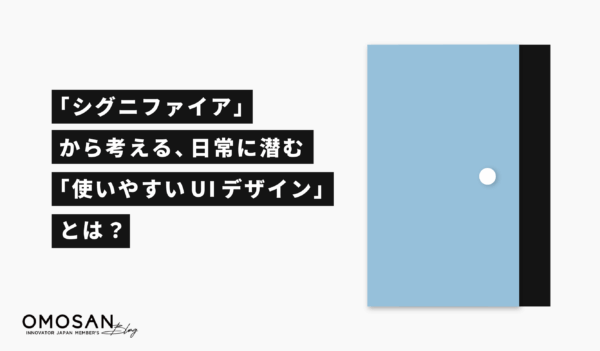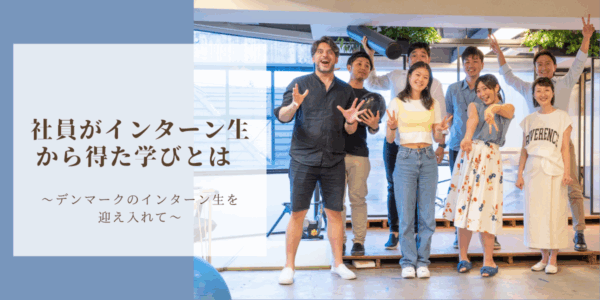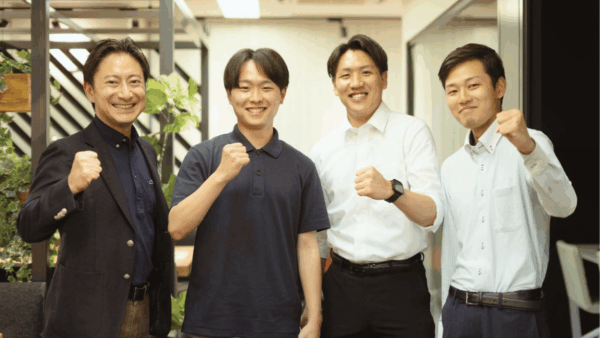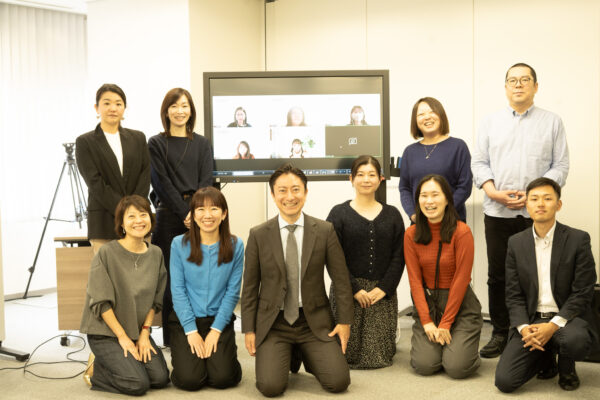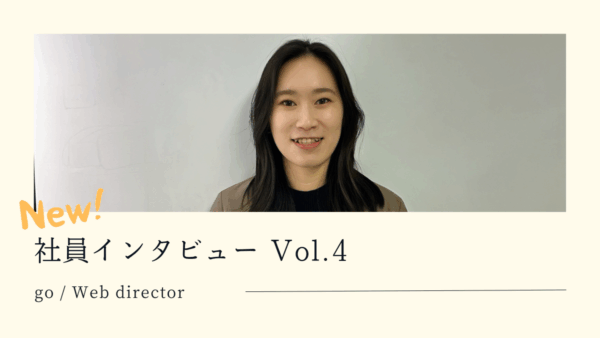こんにちは。今回は、デンマークからのインターン生であるMakiさんに、日本の働き方についてプレゼンテーションを行なっていただきました。
Presentation
So, the overall case of the presentation was: Let’s analyze the Japanese way of working from a Scandinavian value perspective and try to improve what we think are the issues.
I had to research the general working style of Japanese (office) workers from my perspective as a Dane and a Scandinavian citizen.
プレゼンテーション
このプレゼンの全体像は
- 北欧の価値観から日本人の働き方を分析し、
- 問題だと思うところについて改善提案を行うこと
です。
デンマーク人であり北欧人である私の視点から、日本人(オフィスワーカー)の一般的な働き方を研究することになりました。
Common thoughts on the Japanese working style
I (whose mother and father are Japanese)first wrote down my own thoughts and imagines of what I thought Japanese employees work. My initial perspective contained of long working hours, inequality between men and women, low income, and then the wild drinking culture after work (also on weekdays). These were my general perspective of what a Japanese worker was characterized by.
Then I researched on the internet (YouTube & articles) to find out what qualities the average worker in Japan possesses. The most mentioned quality of the Japanese working style was the hierarchy/seniority that is often found in a large or small company. This hierarchy between workers and bosses and presidents is especially interesting to investigate, because it is nothing like I have experienced in Denmark. In Japan there is a clear division between the president and bosses in one unit and then the lower titled workers in another unit. This hierarchy can cause miscommunication between the bosses and workers and the worker would also lose the ability to fully express themselves to their bosses when this strong division is at stake. Another common thought of the Japanese working style is the long working hours that an employee will normally go through. It is common to work overtime without any kind of compensation, but the employees will often feel pressure from their bosses or even their own loyalty to their company. Employees in Japan have a strong loyalty to their company because they know that their hard work is supporting the Japanese economic growth. But what is very interesting to look at is that Japan has a very low productivity rate, and even the lowest between the G7 countries (America, United Kingdom, Germany, France, Italia, Canada, Japan and Russia). Those long working hours doesn’t necessarily mean a high productivity rate.
Other thoughts on the Japanese working style exist of competitiveness and inequality pay between men and women.
日本人の働き方に関する一般的な考え
まず、(父や母が日本人である)私が考える日本人の働き方について、自分なりに書き出してみました。
- 長時間労働
- 男女格差
- 低収入
- 仕事帰りの飲酒文化
これらなどが、私の考える日本の労働者の特徴でした。
そこで、インターネット(YouTubeや記事)で、日本の一般的な労働者がどのような特徴を持っているのか調べてみました。日本人の働き方の特徴として最も言及されていたのは、大企業でも中小企業でもよく見られる上下関係です。この、労働者や上司、社長の間のヒエラルキーは、私がデンマークで経験したものと全く違うので、調査する上で特に興味深いものでした。
日本では、社長や上司がいる部署と、それ以下の立場の労働者がいる部署が明確に分かれています。このヒエラルキーは、上司と労働者の間にミスコミュニケーションを引き起こすだけでなく、労働者は上司に自分を十分に表現することができなくなります。
また、日本的な働き方の特徴として、長時間労働が挙げられます。残業代は出ませんが、上司からのプレッシャー、あるいは自分の会社への忠誠心から、残業するのが普通なのです。
日本の社員が会社に対して強い忠誠心を持っているのは、自分の頑張りが日本の経済成長を支えていると知っているからです。しかし、非常に興味深いのは、日本の生産性が非常に低く、G7(アメリカ、イギリス、ドイツ、フランス、イタリア、カナダ、日本、ロシア)の中でも最低であることです。労働時間が長いからと言って、生産性が高いとは限りません。
また、日本人の働き方については、競争主義や男女間の賃金格差などの考え方があります。
Survey
I then made a survey for Japanese office workers, mostly to find out what the general perspective is on the Japanese working experience. 61 responders took part in this survey therefore I could generalize the common thought around the case and then eventually compare the results to the Danish working style (from my perspective).
アンケート調査
次に、日本人のオフィスワーカーを対象にアンケートを実施しました。
このアンケートには61名の回答があり、日本人の働き方に関する共通の考えを一般化し、最終的にはその結果をデンマークのワークスタイルと比較することができました。
1st question: “How much do you work in a week?”
82% answered 37 hours or more, which is the same as in Denmark for full-time employees. If you should consider your pre-knowledge of the working hours in Japan, you could imagine the average working hours in a week in Japan is between 40-45 hours, whereas in Denmark you don’t often find overtime work and especially not without compensation (like not having to work as much the week after or save up for paid leaves).
1問目 :「1週間にどのくらい働きますか?」
82%が37時間以上と回答し、これはデンマークの正社員と同じです。日本の労働時間について予備知識を入れておくと、日本では1週間の平均労働時間が40~45時間であるのに対し、デンマークでは残業はあまりなく、特に対価(翌週に負担がかからない、有給休暇が取りやすいなど)がないことが多いです。
2nd question: Do you get benefits from your work contract?”
I was surprised of the result of this question. 39,3% answered “yes”, 37,7% answered “maybe”, and 23% answered “no”. About ¼ answered no if they get great benefits, and maybe this has something to do with how much they work or maybe in general how their work conditions maybe don’t match up with their benefits.
Someone commented on that there was a high “maybe” percentage, and made a really good point about, that Japanese people are usually indecisive. This is shown perfectly shown in this survey.
2問目:「労働契約による福利厚生はありますか?」
この質問の結果には驚きました。39.3%が「はい」、37.7%が「たぶん」、23%が「いいえ」と答えました。約1/4が「ない」と答えていますが、これは労働量と関係があるのかもしれませんし、労働条件と福利厚生がマッチしていないのかもしれません。
ある人が、「たぶん」の割合が高いことについてコメントし、「日本人は優柔不断である」という実に良い指摘をしています。これは、この調査で完璧に示されています。
3rd question: “What kind of benefits do you get?”
I then asked which kinds of benefits they get if they answered “yes” on the previous question. The most common mentioned benefit is “healthcare” and “social insurance”. I then looked into the common benefits an ordinary full-time employer gets according to the internet, and I was surprised of how many great benefits an employer in Japan gets. The most important ones are the healthcare insurance as well as social insurance, but an employer can also get their housing cost covered or have paid technology equipment as well as parental leave allowance.
3問目:「どのような福利厚生がありますか?」
次に、前の質問で「はい」と答えた場合、どのような福利厚生が得られるかを尋ねました。 最も一般的に言及されている利点は、「医療保険」と「社会保険」です。
そこで、インターネットで一般的な正社員の福利厚生を調べてみたのですが、日本の雇用主が受ける福利厚生の充実ぶりに驚きました。最も重要なのは、医療保険や社会保険ですが、それ以外にも、住宅手当や技術設備手当、育児休業手当などがあります。
4th question: “Do you get free time to go on vacation? – how many days a year do you get free time?”
People in Japan get about 10 days paid leave, so in the survey people mostly answered that they get “1 week or less days” off (37,7%) or between “1-2 weeks” (37,7%). In Japan people often take less than 10 days off work and take maybe 5 days off instead. They can save up their vacation days until they quit, which is not something you can do in Denmark. For what I have read on the internet, it is mostly about the pressure of not being a hard worker if they take a lot of days off in a year. Nonetheless Japanese workers take at least some days off work, which I think is very important to do, when you work full-time.
4問目:「旅行に行くのに自由な時間はありますか?- 年間何日くらい休暇を取れますか?」
日本では有給休暇は10日程度なので、アンケートでは「1週間以内の日数」(37,7%)、または「1~2週間」(37,7%)と答える人がほとんどでした。
日本では10日以下の休みが多く、5日程度の休みを取る人が多いようです。辞めるまで休暇を貯めることができるのですが、これはデンマークではできないことです。
ネットで読んだ限りでは、1年に何日も休んでいたら働き者ではないというプレッシャーがかかるというのが主な理由らしいです。しかし、日本人は少なくとも何日かは休みを取っていることが分かりました。
5th question: “Do you like your workspace?”
Almost half of the responders answered “yes” (49,2%), which is very good. Almost ¼ of the responders said “no” (23%) and 27,8% said “maybe”. There are still many people who doesn’t like their workspace.
5問目:「自分のワークスペースは好きですか?」
ほぼ半数の回答者が「はい」(49,2%)と答えており、非常に良い結果となっています。一方、「いいえ」と答えた人は23%、「たぶん」と答えた人は27.8%でした。まだまだ、自分のワークスペースが好きでない人は少なくないようです。
6th question: “Why do you like your workspace?”
People answered this question with mostly the access to “flexibility” between home and office as well as “great co-workers with same mindsets”. The flexibility is very good to have within a workspace, so workers can schedule after their own situations, if they have to look after kids or other family matters. But this differ between the companies in Japan. Having great co-workers is also very important in a workspace because workers can become motivated by each other.
Other answers were: “Open and free (no strict rules)”, “Better concentration rate at the office”, “great facilities (drinks, nearby stations, office supplies)”.
6問目:「なぜあなたはあなたのワークスペースが好きですか?」
この質問に対しては、自宅とオフィスの間の「柔軟性」「同じ考えを持つ素晴らしい同僚」への回答がほとんどでした。
また、ワークスペースにフレキシビリティがあることは非常に良いことで、子供や家族の世話をしなければならない場合、自分の状況に応じてスケジュールを組むことができます。
しかし、これは日本の企業によって異なります。 労働者はお互いにやる気を起こさせることができるので、素晴らしい同僚を持つこともワークスペースで非常に重要です。
その他の回答としては 「オープンで自由(厳しいルールがない)」「オフィスでの集中力が高まる」「設備が充実している(飲み物、最寄り駅、事務用品)」などがありました。
7th question: “Are you satisfied with your work environment?”
Over half of the responders answered with “yes” (54,1%), which probably cohere with the 5th question. ¼ said “maybe” and 1/5 of the responders said “no”.
7問目:「職場環境に満足していますか?」
半数以上が 「はい」(54,1%)と答えており、5番目の質問とおそらく一致しています。また、「たぶん」と答えた人は1/4程度、「いいえ」と答えた人は1/5程度でした。
8th question: “Why don’t you like your work environment?”
I thought it would be interesting to see what problems there could be within their work environments. 1/5 of the responders answered “no” to the previous question, and that is still a quite large number of responders that don’t think they have a good work environment. The unsatisfied Japanese workers mostly said, “long working hours” and “don’t like their superiors”, which indicated that many workers have problems with their president or boss.
Maybe the root of the problem lies in the way that Japanese people think about work. The mindsets of the Japanese people have been the same for many years, and that is hard to change, but if Japanese workers could look from a different perspective of how people should work and why they work, then maybe the Japanese working style could be less intensified and more comfortable.
8問目:「なぜ職場環境が好きではないのですか?”」
彼らの職場環境にはどんな問題があるのか、興味深く拝見しました。
前問で「いいえ」と答えた人は1/5で、これでもかなり多くの人が良い職場環境だと思っていないことになります。
不満足な点としては、「労働時間が長い」「上司が嫌い」という回答が多く、社長や上司との関係に悩みを抱えている人が多いようです。
もしかしたら、この問題の根源は、日本人の仕事に対する考え方にあるのかもしれません。
日本人の考え方は長年同じで、それを変えるのは難しいですが、もし日本の労働者が「人はどう働くべきか」「なぜ働くのか」という別の視点から見ることができれば、日本の働き方はより激化せず、快適になるかもしれません。
Interview
I then had a very small interview with Japanese workers from the &donuts project to be able to confirm the overall perspective from the survey. I only asked them three different questions, because these questions would give me the general idea of the Japanese working style.
インタビュー
その後、アンケートで得た全体像を確認するために、&donutsプロジェクトで働く日本人何名かにンタビューを行いました。というのも、これらの質問によって、日本人のワークスタイルについての一般的な見解が得られるからです。
1st question: “What do you think are the problems in the Japanese working style (ex. Lack of benefits, non-flexible hours, salary)?
They mostly answered with what I also got from the survey. “non-vacation culture”, “seniority”, “overwork”, “lack of communication” and “non-flexibility (because of low quality)”, which I think has changed after covid, but in general it is better to meet up in the office because a worker will be able to work with higher quality and therefore also the have a product of better quality.
1問目:「日本の働き方の問題点(例:福利厚生の不足、時間の融通がきかない、給与)は何だと思いますか?」
この質問に対して、私がアンケートで得たものとほぼ同じ答えが返ってきました。「休めない文化」「年功序列」「過労」「コミュニケーション不足」「ノンフレキシビリティー」。これはCovid以降変わったと思いますが、一般的にはオフィスで会う方が、より質の高い仕事ができ、その結果、より質の高い製品ができるのです。
2nd question: “If you think there should be some improvements in the Japanese working style, what should it be?”
Their answer to this question was based around the problem that often comes from the “old” mindset of being in a working environment. People in Japan still lives with the same values, beliefs and mindsets dating back 40 years, and that is maybe where the problem actually lies.
Other answers they gave were, that it is hard to fire someone as well as there hasn’t been a salary change in 30 years.
2問目:「日本の働き方に改善すべき点があるとしたら、それは何でしょうか?」
この質問に対する彼らの答えは、労働環境における「古い」マインドセットから来る問題を中心にしたものが多かったです。日本では、40年前から変わらない価値観や信念、考え方で生活しており、そこに問題があるのかもしれません。
また、「解雇が難しい」「30年間給料が変わっていない」などの回答もありました。
3rd question: “Have you got an idea of what the typical perspective of the Japanese working style is?”
The answers to this question are very similar to the answers that are already mentioned: “Overwork”, “old mindset”, “pressure, and “lack of communication”
3問目:「日本人の働き方の典型的な視点とは何か、イメージできますか?」
この質問に対する回答は、すでに述べた回答と非常によく似ています。「過労」「古い考え方」「プレッシャー」「コミュニケーション不足」。
Denmark vs Japan
I then compared working style between Denmark and Japan.
デンマークと日本の比較
次に、デンマークと日本の働き方を比較しました。
上記の表では、デンマークはフレックスタイム制や、残業がないことでワークライフバランスが取れているのに対し、日本は残業による過労があることを示しています。
また、デンマークの組織はフラットであるのに対し、日本の組織には上下関係があります。
What to improve
Lastly, I wanted to give some suggestion to how the Japanese working environment should improve from my personal perspective as well as from a westernized, Scandinavian view. First of all, I think you work best in a good working space (more open spaces as well as more individual space), seniority should be more loose, flexible hours, appeal for more vacation, treating men and women equally, and comfortable environments (no pressure from other co-workers).
では、どうすればよいか?
最後に、日本の労働環境がどのように改善されるべきか、私の個人的な視点と、西洋的、北欧的な視点から、いくつか提案したいと思います。
- 働きやすい空間(個人のスペースだけでなくオープンなスペースも増やす)
- 年功序列はもっと緩く
- フレックスタイム制
- 休暇の多さをアピール
- 男女を平等に扱う
- 快適な環境(他の同僚からのプレッシャーがない)
が挙げられると思います。
I only have experience from a Danish working environment, but those working conditions cannot be complaint about. Denmark has the third best employment law in the world (2021), so I should really appreciate the work conditions I have when I go to work. So, with these conditions in mind, I came up with some suggestion for the Japanese working environment.
私はデンマークの労働環境での経験しかありませんが、その労働条件には文句のつけようがありません。デンマークは世界で3番目に優れた雇用法を持っている(2021年)ので、私は職場に行くとき、その労働条件に本当に感謝していました。そこで、これらの条件を念頭に置きながら、日本の労働環境に対する提案を考えてみました。
Questions/comments
I got many comments on my presentation, Thank you so much!
1st point: Overworking is the norm in Japan!
I think I got this comment by many, and I think it is completely right, because that is just how the Japanese workers work without thinking a lot about it.
“My husband’s company is overworked in the traditional way, but he doesn’t really mind. However, it is not flexible for the family, so they have to put up with a lot.”
“I thought most reason why Japanese people work overtime is mindset… if people want to care family, they want to finish their work earlier.”
“Furthermore, I thought that many people work overtime, so long hours are the norm in the mindset”
“In spite of high pressure, maybe we do not realize it I think…”
These comments about the overwork tradition for Japanese workers is not something many Japanese workers mind, because it is included in the norm. But looking from an outside perspective it looks like it is a really unhealthy norm and culture.
質問・コメント
私の発表に対して、たくさんのコメントをいただきました!ありがとうございます。
1点目:日本では過労死が当たり前
このコメントは多くの方から頂きましたが、全くその通りだと思います。なぜなら、日本の労働者は深く考えずに働いているからです。
- 夫の会社は昔ながらの過重労働ですが、本人はあまり気にしていません。しかし、家族にとっては融通が利かないので、我慢しなければならないことが多いです。
- 日本人が残業をする理由の多くは、家族を大切にしたいなら早く仕事を終わらせたいという心理だと思いました。
- さらに、残業する人が多いので、長時間労働が当たり前という意識もあると思いました。
- プレッシャーが大きい割に、自分では気づいていないのかもしれない…。
日本の労働者の過重労働の伝統についてのこれらのコメントは、多くの日本の労働者が気にしていないことです。しかし、外から見ると、実に不健全な規範と文化であるように見えます。
2nd point: priority of the individual
The second point deals with how the individual prioritizes their life.
“I thought that in Japan, people unconsciously think of work as the center of their lives. I think the Danish way of thinking is wonderful, and as an individual, I envy their way of thinking… However, in Japan, even if a company adopts such a corporate policy that values individual life, if the client does not have such a way of thinking, it will not go well. I also thought that even if a company has a corporate policy that values the lives of individuals, if the clients do not have such a mindset, it will not go well…”
“I thought that people in Denmark do not work overtime because they value their families.Japanese people, in many cases, do not want to go home for work. My father was like that.”
And the first comment highlights how the Danish workers think perfectly. In Denmark workers work so they can support their family or themselves. They value the family or themselves more than the actual work, and with that mindset Danes think about their individual worth more than the value of the work itself. Of course, there are Danish workers who are very career orientated, but they also know their limits. Career orientated Danish workers works with selfish reasons in mind like working to build up their own reputation instead of the company or the clients. With this mindset overwork is not common in Denmark and pressure is not felt as much compared to Japan, because Danes know their limits and know their self-worth.
It is really hard to suddenly change the mindsets of all Japanese workers, but from the outside perspective, this mindset can become toxic and unhealthy for all future generations who will enter the work environment as well.
2点目:個人の優先順位
2つ目のポイントは、個人が自分の人生をどのように優先させるかについてです。
- 日本では、無意識のうちに仕事を中心に考えているのではと思いました。デンマークの考え方は素晴らしいと思いますし、個人としても羨ましいのですが…。しかし、日本では、会社がそのような個人の人生を大切にする企業方針をとっても、クライアントがそのような考え方を持っていなければ、うまくいかないと思います。また、個人の命を大切にする企業方針を掲げても、クライアントがそのような考え方を持っていなければ、うまくいかないと思いました……。
- デンマークの人が残業をしないのは、家族を大切にしているからだと思いました。日本人は、仕事のために家に帰りたくないというケースが多いです。私の父もそうでした。
最初のコメントには、デンマークの労働者の考え方が見事に浮き彫りにされています。デンマークでは、労働者は家族や自分自身を養うために働きます。
仕事そのものよりも、家族や自分自身を大切にするのです。その考え方で、デンマーク人は仕事そのものの価値よりも、個人の価値について考えています。
もちろん、キャリア志向のデンマーク人労働者もいますが、彼らは自分の限界も知っています。キャリア志向のデンマーク人は、会社やクライアントのためではなく、自分の評判を上げるために仕事をするなど、利己的な理由で仕事をします。
このような考え方から、デンマークではオーバーワークが少なく、日本に比べてプレッシャーを感じることがありません。
日本の労働者全員の意識を突然変えるのは本当に難しいことですが、外から見ると、この考え方は、これから職場に入ってくるすべての世代にとっても、有害で不健康なものになりかねません。
3rd point: Japanese working style is changing
As I also have written previously, Japanese working style is changing bit by bit for the better, which is very good. I think Japanese people need to recognize their values and limits more than now.
“In Japan, the situation is gradually changing with calls for reforms in the way people work, but I felt that there is still a long way to go. Even in such a situation, I thought that Innovator Japan’s way of working is not so bad.”
“…I feel that Japan is gradually shifting from a work-centered to a lifestyle-centered mindset, as work from home has become common due to Corona, but there are still some so-called “sports club” types in Japan, and I hope that the world will become a more relaxed place”
“…I think IJ is good place to work, compared with my ex-office”
“I wish more companies would allow us to take time off without feeling guilty.I also think the reality in Japan is that many women do not need to be paid as much as men and want to work loose. Things are changing a little bit, though.”
Innovator Japan is really a great company in my perspective because it has all the right values that should be implemented in an office as well as having a great environment when working. I was very surprised by all the facilities as well as all the individual options an employee has when working for this company. Innovator Japan is definitely going in the right direction in terms of Japanese workers quality of life from the outside perspective.
3点目:日本人の働き方が変わってきている
以前にも書きましたが、日本人の働き方が少しずつ良い方向に変わってきていることは、とても良いことだと思います。日本人は今以上に自分の価値観や限界を認識する必要があるのではないでしょうか。
- 「働き方改革」が叫ばれ、少しずつ状況が変わってきている日本ですが、まだまだ道のりは長いと感じました。そんな中でも、イノベーター・ジャパンの働き方は悪くないと思いました。
- 日本はコロナの影響で在宅勤務が一般的になり、仕事中心から生活中心の考え方に少しずつシフトしているように感じますが、まだまだいわゆる「体育会系」が残っており、もっとゆとりのある世の中になってほしいです。
- 前の職場に比べたら、IJはいい職場だと思う。
- 罪悪感を持たずに休める会社がもっと増えてほしい。また、日本の現実として、女性は男性ほど給料をもらう必要がなく、ゆるく働きたいと思っている人が多いと思います。少しは変わってきていますが。
イノベーター・ジャパンは、働く環境が整っているだけでなく、オフィスにあるべき正しい価値観をすべて備えているので、私の目から見ても本当に素晴らしい会社だと思います。設備も充実していますし、社員一人ひとりの選択肢の多さには驚かされました。イノベーター・ジャパンは、外から見た日本の労働者の生活の質という点では、間違いなく正しい方向に進んでいると思います。
4th point: Comparing the Danish working style and the Japanese working style
These points are about the impression the Danish work system from Japanese workers as well as recognizing the Japanese workstyle from a foreigners’ perspective
“I was surprised at the poor impression of the Japanese way of working that people from overseas think.”
“I have found that the Danish way of working is wonderful. I hope that Japan will gradually improve as well.”
“I learned that the way of thinking about communication is different in Japan and Denmark. I will actively try to communicate with people in the company.”
“Thank you for your good presentation. I thought Denmark was a very comfortable working environment. I hope Japan will have less overwork and more vacations.”
“I was able to get a different perspective on the current situation in Japan, which gave me an opportunity to think about ways of thinking and improvements in a wider world.
“To be able to look at the situation in Japan objectively and to see the future potential of our effort”
“It was interesting to see the differences in working styles in each country. I was also wondering how the vacation culture could be realized.”
“The difference between Denmark and Japan was interesting. In particular, I felt that awareness of working hours and vacations leads to productivity.”
“I wish I could take a long vacation more freely in Japan as well.
Especially in the retail industry, there are many business establishments that are making shifts when there are not enough st so I think it is quite difficult in Japan”
“Highlighting of 1/3rd of the audience opting for MAYBE. Lack of opinion is still a major problem in Japan which I feel was validated in this presentation.”
I can’t say that the Danish work environment is perfect, but I appreciate the norm and the mindset of Danish workers.
4点目:デンマークの働き方と日本の働き方の比較
これらのポイントは、日本人労働者から見たデンマークの働き方の印象と、外国人から見た日本の働き方を認識することです。
- 海外の人が考える日本人の働き方の印象が悪いことに驚きました。
- デンマークの働き方は素晴らしいということがわかりました。日本も徐々に改善していってほしいです。
- 日本とデンマークでは、コミュニケーションに対する考え方が違うことを知りました。会社の人と積極的にコミュニケーションをとっていこうと思います。
- 良いプレゼンテーションをありがとうございました。デンマークはとても働きやすい環境だと思いました。日本も過労死が減り、休みが増えるといいなと思います。
- 日本の現状を違う角度から見ることができ、広い世界での考え方や改善策を考えるきっかけになりました。日本の現状を客観的に見ることができ、今後の努力の可能性を見出すことができました。
- 各国での働き方の違いが興味深かったです。また、バカンス文化がどのように実現できるのかが気になりました。
- デンマークと日本の違いが興味深かったです。特に、労働時間や休暇に対する意識が生産性につながると感じました。
- 日本でももっと自由に長期休暇が取れればと思いました。特に小売業では、人手が足りないときにシフトを組んでいる事業所が多いので、日本ではかなり難しいと思います。
- 回答者の1/3が「MAYBE」を選択したことを強調しました。日本ではまだ意見の欠如が大きな問題になっていますが、このプレゼンテーションでそれが証明されたと思います。
デンマークの労働環境が完璧とは言えませんが、デンマークの労働者の規範や考え方は評価できます。
Internship at innovator Japan
It was my first time interning anywhere, but I think it was very exciting as well as educational. Innovator Japan is a very intriguing company with a lot of great people and very good work environment. There is a lot of freedom between the workers, but they all unite when it is lunchtime. Also because of the internship I got to learn about many new restaurants in Tokyo, so Thank you so much. The most exciting thing I learned doing this internship was testing my boundaries, like doing a presentation in front of many people I didn’t know on ZOOM in a language that is not my nor the listener’s first language. It was also really interesting as well as educational to research the overall case about the Japanese working style from a foreigner’s perspective.
People at this company were also really nice and caring, so the process of being an intern at this company was very easy. I especially liked the day when the cute Hachi dog (Koroちゃん?) came to the office. That dog was really adorable. I will forever remember and cherish this experience, so THANK YOU SO MUCH, and I hope we meet again someday!!!
最後に(イノベーター・ジャパンでのインターン)
インターンをするのは初めてでしたが、とても刺激的であると同時に勉強になったと思っています。イノベーター・ジャパンはとても魅力的な会社で、たくさんの素晴らしい人たちととても良い職場環境でした。
社員間の自由度は高いですが、ランチタイムでは団らんをします。また、このインターンシップのおかげで、東京の新しいレストランをたくさん知ることができました。本当にありがとうございました。
このインターンシップで学んだ最もエキサイティングなことは、自分の限界を試すことです。例えば、ZOOMで多くの知らない人の前で、自分も聞く人も母国語ではない言語でプレゼンテーションをしました。
また、外国人の視点から日本人の働き方について総合的に研究することは、とても興味深く、勉強になりました。
この会社の人たちも本当に親切で思いやりがあって、この会社でのインターンはとてもやりやすかったです。
特に、かわいいハチ公(コロちゃん?)が会社に来た日がよかったです。あの犬は本当に可愛かったです。この経験は一生忘れないし、大切にしたいです。
ありがとうございました!
